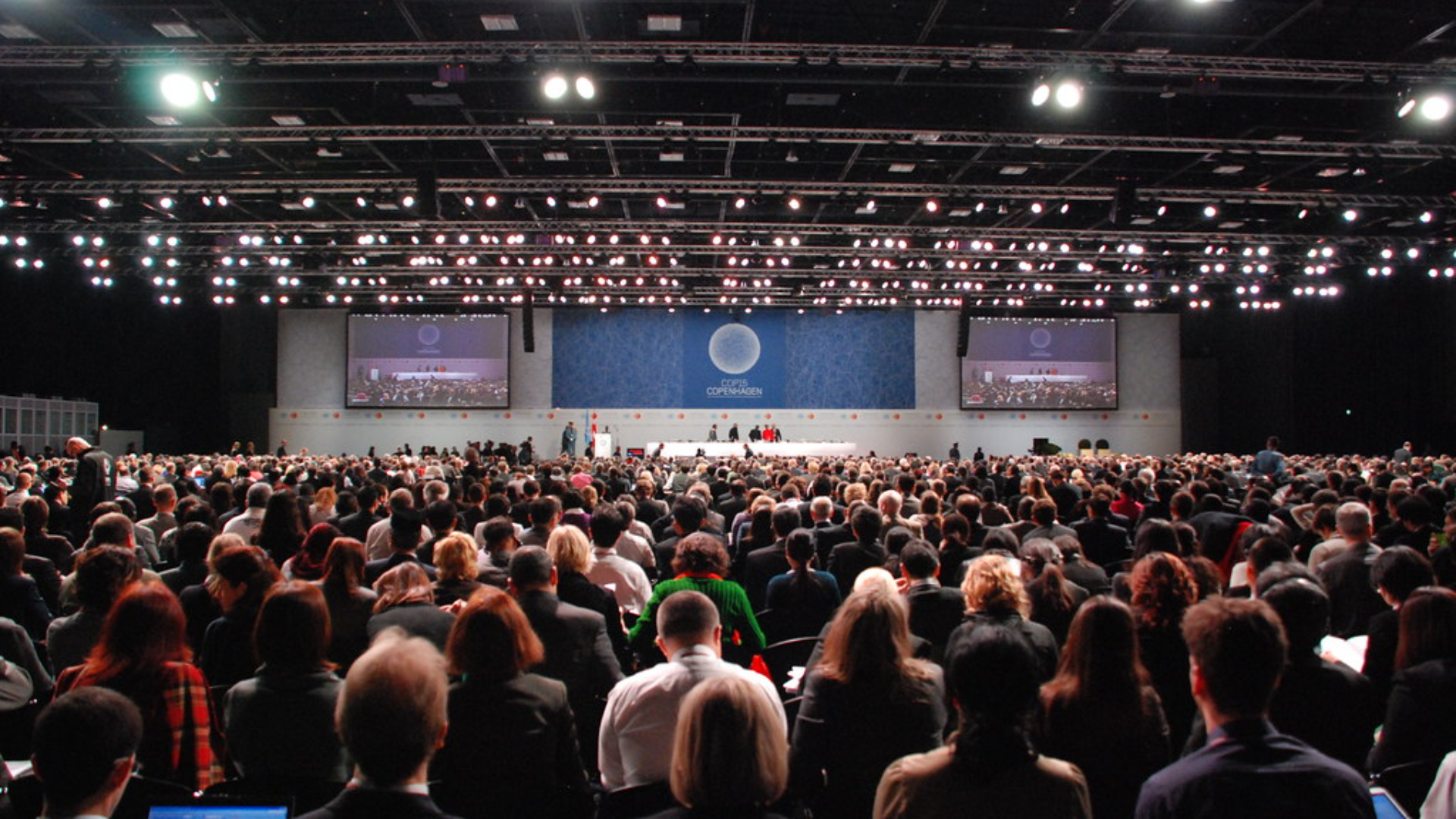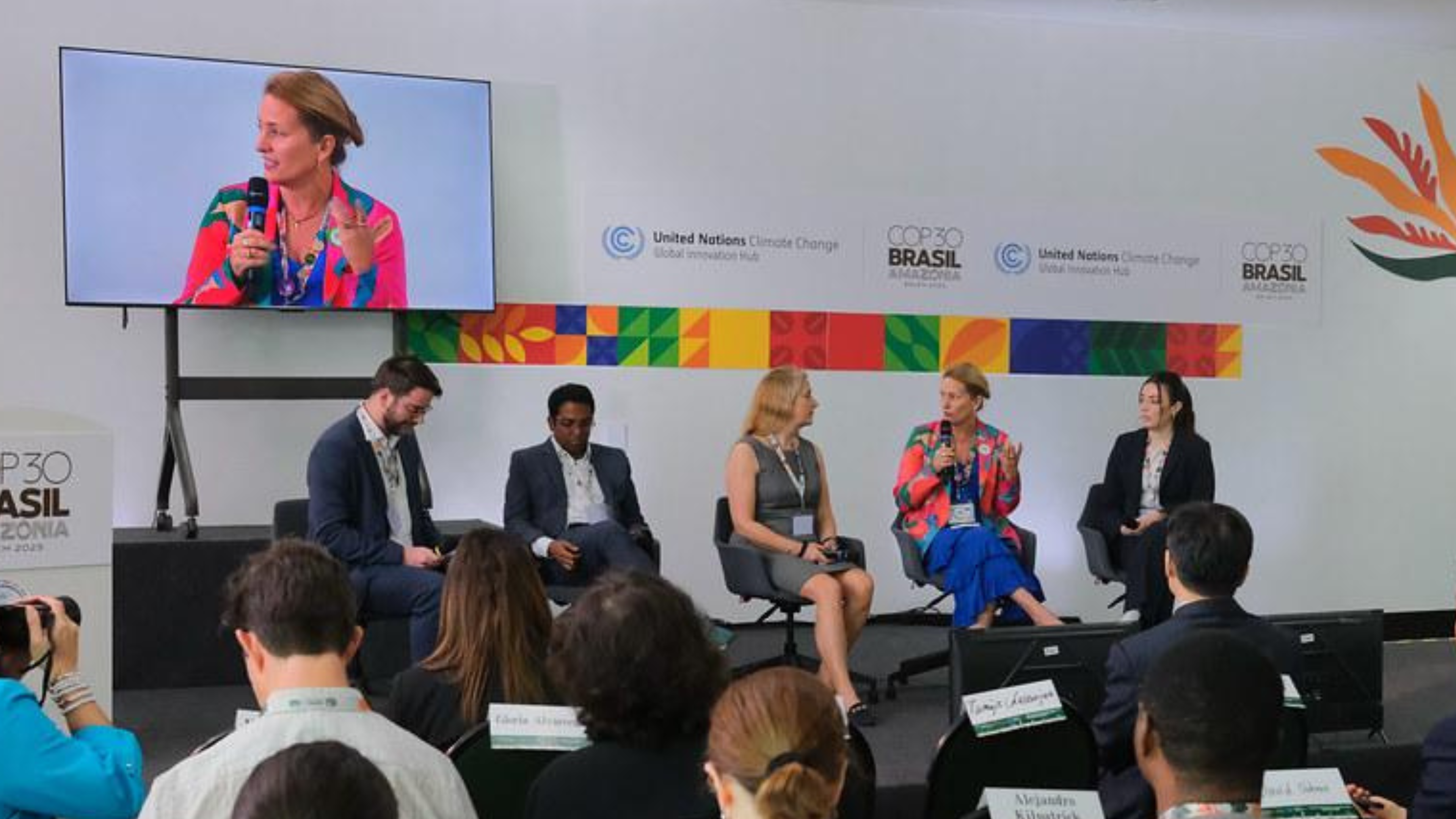
COP Resource Hub
Welcome to the SDSN Guide to COP
The UN Sustainable Development Solutions Network’s (SDSN) COP Resource Hub is your trusted guide for navigating and preparing for the Conference of the Parties (COPs). Designed to empower stakeholders across all sectors, this Hub offers essential guidance, tools, and resources to help the SDSN Community effectively engage in COP meetings, learn about the key issues at hand, and drive meaningful climate action.

What is COP?
Action on Climate
The Conference of the Parties (COP) is the supreme governing body of the UN Framework Convention on Climate Change (UNFCCC). The UNFCCC COP, or the UN Climate Conference, reviews national commitments and emissions inventories submitted by Member States. It assesses the measures taken to address climate change and evaluates progress toward the Convention's goals, including the Sustainable Development Goals (SDGs) and the Paris Agreement on Climate Change.
The COP convenes annually, with its first meeting held in Berlin, Germany, in 1995. The venue and Presidency rotate among five recognized UN regions. In 2025, the UNFCCC COP30 was held in Belém, Brazil — marking the first UN Climate Conference in the Amazon. In 2026, Turkey will host COP31 in Antalya, with Australia leading the negotiation process.
Action on Nature
In addition to the UNFCCC COP, the COP of the Convention on Biological Diversity (CBD) — an international treaty adopted at the Earth Summit in Rio de Janeiro in 1992 — is held every two years to assess progress and adopt strategies to conserve biological diversity, ensure its sustainable use, and fairly share the benefits of the use of genetic resources. The CBD COP16 was held in Cali, Colombia, and the CBD COP17 will take place from October 19–30, 2026, in Yerevan, Armenia.
At the heart of the negotiations are questions of finance, specifically on mobilizing $200 billion USD annually by 2030 to support biodiversity. The COP16 in Colombia assessed national progress on the Kunming-Montreal Global Biodiversity Framework (KMGBF) targets and the effectiveness of National Biodiversity Strategy and Action Plans (NBSAPs). Parties also adopted a historic Programme of Work on Article 8(j) to ensure Indigenous voices are integral to biodiversity governance.
Action on Land Degradation and Desertification
The UNCCD COP is the main decision-making body of the UN Convention to Combat Desertification (UNCCD), one of the major UN treaties adopted at the Earth Summit in Rio de Janeiro in 1992. This COP is a crucial meeting aimed at assessing and adopting global efforts to combat land degradation and desertification and to strengthen resilience. In 2024, the UNCCD COP16 convened in Riyadh, Saudi Arabia, and the UNCCD COP17 will take place from August 17-28, 2026, in Ulaanbaatar, Mongolia.

The SDSN at COP
The SDSN’s involvement in the UNFCCC COP on Climate Change dates back to COP21 (2015), where SDSN Leadership Council Member Laurence Tubiana championed setting total decarbonization and climate neutrality as one of the lead negotiators of the pact. Since then, the SDSN hosted discussions on critical technologies and solutions, amplified expert knowledge, mobilized political action, and helped to advance firm, global commitments.
The SDSN’s participation at COP has taken various forms, with highlights including the creation of a Climate Action MOOC (2016); hosting the Low-Emissions Solutions Conference (LESC) (2016-2019); convening the Council of Engineers for the Energy Transition (CEET), an independent Council of Engineers for the UN Secretary-General (2022-2024); launching the first Science Panel for the Amazon Assessment Report (2021); mobilizing universities around the Net Zero on Campus Guide (2023); and convening the Co-Chairs of the Science Panels for the Amazon, Congo Basin, and Borneo for the first time (2025), among others.
UNFCCC COP30 in Brazil
In 2025, the SDSN participated in the UNFCCC COP30 in Belém, Brazil. Delegates gathered in the heart of the global climate crisis: the Amazon Rainforest, a biome that plays a central role in regulating the Earth’s climate, yet faces escalating threats as it nears an irreversible tipping point. The SDSN organized over 30 side events on safeguarding tropical forest biodiversity, shaping the future of global bioeconomies and food systems transformation, and strengthening capacity for the energy transition. We also released several key publications, including assessments of the Amazon, Congo Basin, and Borneo, as well as two issue briefs on green hydrogen and Brazil's power infrastructure.
At the close of COP30, negotiators reached an agreement that included specific indicators for tracking climate adaptation, along with $1.8 billion in pledges to support Indigenous land rights. However, despite extensive discussion, the final text did not include concrete roadmaps for reducing deforestation or transitioning away from fossil fuels. These gaps and others will shape critical discussions heading into COP31 in Turkey, where Australia will preside over the negotiations.
Press Inquiries
Contact our global Communications Team to request an interview with one of our program experts. Subscribe to the SDSN Global Newsletter and follow the SDSN on LinkedIn, X, Facebook, and Bluesky for additional updates on COP and other programmatic activities.

